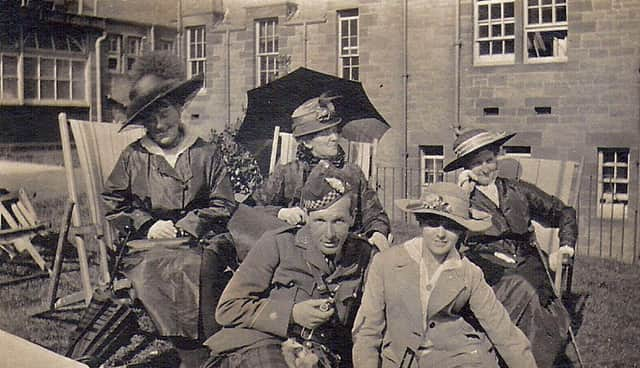Historian calls for former hospital to become war museum


Edinburgh University has announced it is to wind up the Scotland’s War project, Scotland’s biggest First World War public engagement exercise, in the middle of the centenary celebrations.
Last month the university said the project was being axed due to the “exhaustion” of £75,000 of funding from the Heritage Lottery Fund and “the fulfilment of the project’s objectives”.
Advertisement
Hide AdAdvertisement
Hide AdDr Yvonne McEwen, who has worked at the university for 12 years and as project director of Scotland’s War for the past eight, said she could not make any comment on the university’s decision but was heartened by messages of support.
The project was set up as the centenary of the First World War approached to research Scots’ involvement in the conflict, to raise public awareness and to gather memorabilia and stories for posterity.
Partners in the Scotland’s War project include the Commonwealth War Graves Commission and the National Library of Scotland, as well as local history groups and councils around the country and The Scotsman.
Dr McEwen said: “I have been overwhelmed with the response from partners and members of the public so there is an appetite to keep it going. It’s ceasing to exist in its current form but I am hoping it will survive in some other form and there can be some way forward until 2018.”
And she said the derelict buildings at Bangour Village Hospital in Dechmont, West Lothian, offered the perfect opportunity to create a centre for the three key aspects of Scots culture – military record, enterprising skills and the diaspora.
The site opened as a psychiatric hospital in 1906 but was requisitioned by the military during both world wars. In 1918 more than 3,000 patients were being cared for there and during the Second World War pioneering work on burns was carried out. Since the last patients left in 2004, the buildings, many A-listed, have become dilapidated.
“We could have a museum dedicated to Scotland’s martial history, research facilities, and a hotel and a conference centre, we could also have workshops to help rehabilitate veterans and teach them new skills,” said Dr McEwen.
A spokeswoman for NHS Lothian, which owns the site, said a planning application for 100 houses was with Scottish ministers and a decision was expected early next year.